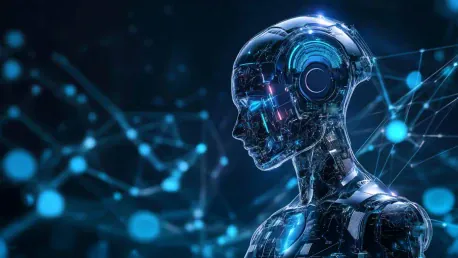Artificial Intelligence (AI) is making significant inroads into Human Resources (HR), promising to reshape how organizations manage employee engagement and satisfaction. As technology progresses, HR professionals are finding new ways to leverage AI to create more efficient, personalized, and supportive work environments. The impact of AI is profound, enhancing every aspect of HR from understanding employee feelings to simplifying administrative tasks, driving toward a more dynamic and satisfactory workplace.
The Rise of AI in HR
AI Integration and its Impact
The advent of AI technologies like ChatGPT has pushed HR leaders to integrate these tools within their operations. This integration is not merely about automating tasks; it fundamentally reshapes how HR functions, offering deeper insights and streamlined workflows. AI technology has revolutionized the collection of employee data, providing continuous monitoring and instant analysis that traditional methods could not achieve. This leap forward in technology has empowered HR professionals to respond more precisely and swiftly to the needs of their workforce, ultimately improving overall employee satisfaction and productivity.
Furthermore, by delegating routine inquiries and data processing to AI, HR professionals can devote more of their time to strategic initiatives that foster a positive organizational culture. For instance, automated chatbots can handle frequent questions about company policies, leave requests, and benefits, which traditionally consumed considerable HR time. The automation of these repetitive tasks not only enhances efficiency but also allows HR teams to focus on cultivating meaningful interactions with employees, addressing complex issues, and developing innovative solutions.
Addressing Existential HR Questions
As AI becomes an integral part of HR, it raises pivotal questions about the core purpose of HR. While AI excels in data processing and administrative tasks, it highlights the irreplaceable human elements of HR, such as building trust and mediating employee relations. The heart of HR lies in genuinely connecting with employees, fostering a supportive environment, and resolving workplace conflicts—areas where the human touch is indispensable. AI can augment these functions, providing the tools and insights needed for HR professionals to perform their roles more effectively without overshadowing their essential human qualities.
Moreover, the introduction of AI prompts HR leaders to reassess their strategies and redefine their roles within the organization. The dichotomy between AI’s efficiency in handling mundane tasks and the intrinsic value of human interaction necessitates a balanced approach, ensuring that the emotional and psychological aspects of employee relations are not neglected. This evolving dynamic requires HR professionals to adapt and learn how to effectively use AI as an ally in optimizing employee engagement and satisfaction.
Enhancing Employee Understanding
Overcoming Traditional Barriers
Historically, HR faced challenges in truly understanding employee sentiment due to limited tools and methodologies. Surveys and performance reviews, while useful, often failed to capture nuanced employee experiences, particularly in larger organizations. The traditional tools were not designed to continuously monitor employee morale nor to analyze the subtleties in human expression, which left HR professionals grappling with incomplete data and reactive approaches to employee dissatisfaction. These limitations underscored the need for more advanced, real-time solutions to grasp the true state of employee engagement.
AI tools offer a transformative approach by providing continuous, detailed insights into employee morale. Advanced analytics can detect subtle patterns of discontent or disengagement, enabling HR to intervene proactively before issues escalate. In comparison to sporadic, periodic assessments, AI provides a more comprehensive and continuous understanding of employee sentiments, reflecting real-time changes in morale and engagement levels. This shift from reactive to proactive management enables HR to address concerns swiftly and effectively, preventing minor issues from evolving into significant problems.
Continuous Employee Insights
AI tools have redefined the way HR collects and interprets employee feedback, offering continuous insights that uncover subtle signs of dissatisfaction or disengagement. Through predictive analytics and sentiment analysis, AI can analyze vast amounts of data from various sources, including emails, surveys, and social media interactions, to discern patterns that might indicate underlying issues. By identifying these trends early, HR can implement measures to address them before they become widespread, fostering a healthier and more engaged workforce.
Furthermore, ensuring employee privacy while gaining insights is another area where AI excels. AI systems can aggregate data while anonymizing personal information, delivering valuable insights without compromising individual privacy. This balance helps HR departments to respect employee confidentiality while understanding collective morale and engagement trends. The ability to analyze such anonymized data empowers HR teams to tailor interventions to specific departments or groups within the organization, effectively addressing localized issues and fostering overall satisfaction.
Streamlining Administrative Tasks
AI Handling Routine Inquiries
Routine administrative tasks, such as answering policy questions or managing leave requests, can now be efficiently handled by AI-driven chatbots. This automation frees up HR professionals to focus on more strategic and personalized tasks. AI chatbots can provide instant, accurate responses to common inquiries, reducing the time employees spend waiting for answers and improving overall efficiency. Additionally, the deployment of AI in these tasks ensures consistency in responses, reducing errors and ambiguities that might arise from manual handling by different HR team members.
Beyond routine inquiries, AI also assists in managing other administrative workloads such as payroll processing and compliance reporting. By automating these functions, HR can ensure smooth operations and maintain regulatory compliance, thus reducing risk and enhancing organizational stability. This automation allows HR professionals to dedicate more time and resources to strategic initiatives, fostering a more engaged and motivated workforce.
Improving the Hiring Process
AI also plays a crucial role in the hiring process by identifying top candidates from resumes and scheduling interviews. By streamlining these processes, AI ensures that HR teams can devote more time to meaningful interactions and cultural fit assessments. The use of AI in recruitment facilitates a more objective and efficient selection process, mitigating biases and significantly reducing the time spent on sifting through resumes. This ensures that only the most qualified candidates proceed to interviews, enhancing the overall quality of the hiring process.
Moreover, AI-powered tools can analyze candidates’ profiles for competencies and predict their potential success within the organization. This predictive capability allows HR to make more informed decisions regarding candidate suitability, ensuring a better match for the company’s culture and needs. This approach not only speeds up the recruitment process but also fosters a more diverse and inclusive workforce by mitigating unconscious biases that may influence human decision-making.
Fostering Employee Growth
Personalized Development Plans
AI’s capabilities extend to fostering employee growth through personalized career development plans. By analyzing data on employee strengths, interests, and performance, AI can recommend tailored training and development opportunities. This personalized approach ensures that employees receive support aligned with their career aspirations and potential, enhancing their professional growth and job satisfaction. By leveraging AI to provide customized learning paths, HR can cultivate a more competent and motivated workforce, driving organizational success and innovation.
Additionally, AI can identify skill gaps and suggest relevant training programs or career transitions. This comprehensive analysis helps HR to craft individualized development strategies that cater to each employee’s unique needs. The focus on personalized development fosters a culture of continuous learning and growth, encouraging employees to take active roles in their professional development and contributing to higher retention rates.
Supporting Employee Well-being
Employee well-being is a critical focus for HR, and AI’s analytical power can help identify individuals or teams at risk of burnout or dissatisfaction. With predictive analytics, HR can implement targeted wellness programs and support initiatives. AI systems can analyze patterns in employee work habits, feedback, and productivity levels to identify signs of stress or potential burnout. These insights enable HR to take preventative measures, such as adapting workloads, offering counseling services, or introducing wellness programs to support employee mental health.
Furthermore, AI can track the effectiveness of these initiatives and provide recommendations for improvements. By continuously monitoring employee well-being, HR can ensure that support programs are consequential and aligned with employee needs, fostering a healthier and more engaged workforce. This proactive management of employee welfare not only enhances individual satisfaction but also contributes to the overall productivity and morale of the organization.
The Human-AI Collaboration in HR
Artificial Intelligence (AI) is significantly transforming Human Resources (HR), promising to revolutionize how organizations handle employee engagement and overall job satisfaction. As technology advances, HR professionals are discovering innovative ways to use AI to create more effective, personalized, and supportive work environments. AI’s impact on HR is vast, enhancing everything from interpreting employee emotions to streamlining administrative tasks. This technology empowers HR departments to make data-driven decisions, ultimately fostering a more active, responsive, and fulfilling work atmosphere. By employing AI for tasks such as recruitment, training, and performance evaluation, companies can better understand and meet the needs of their workforce. This holistic approach not only boosts productivity but also promotes a healthier work-life balance, leading to happier and more engaged employees. As AI technology continues to evolve, its role in HR will undoubtedly expand, further reshaping the dynamics of the modern workplace.









